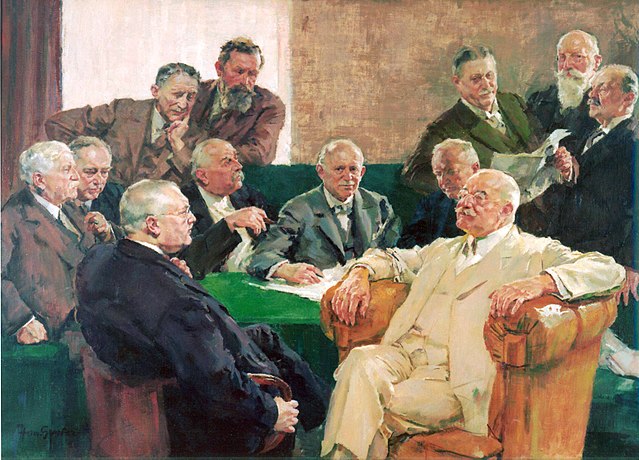Lukas Lehner of the OECD examines Austria’s decade long renaissance of social partners and how it caused a divergence from the liberalising trajectory with several de-liberalising and re-regulating policies being adopted
On a global scale, the dominating trend of liberalisation, deregulation and privatisation has accelerated since the economic crisis of 2008. Under the paradigm of competitiveness, a major policy goal has been the implementation of structural reforms’replacing neo-corporatist practices with market coordination in advanced economies. As part of this trend Austria has liberalised its economy gradually since the 1980s with increased deregulation and privatisation in the early 2000s. The power balance in the economy has shifted towards employers as the mobilising strength of trade unions has declined. Somewhat unnoticed, Austrian trade unions suffered the strongest decline in membership of any other Western European country over the last decades.

By contrast, however, Austria’s coordinating institutions have actually been strengthened since 2008 – despite the EU-wide liberalising trend. Austrian governments have pushed de-liberalisation policies and stepped up efforts against the dominant trend of deregulation and privatisation. This made the decade since 2008 the only period since the 1970s in which de-liberalisation policy measures have outweighed liberalisation policies (as documented in Armingeon & Fill’s liberalization index). Examples of policies which strengthened strategic coordination include:
- Introduction of temporary part-time work (‘Kurzarbeit’)
- Adoption of a Youth Guarantee for apprenticeships
- Reversing the privatisation trend
- Strengthening employment standards by public procurement regulation
- Introduction of the anti-wage-and-social- dumping law
- Re-regulation of employment contracts
- Introduction of a new social assistance system (‘Bedarfsorientierte Mindestsicherung’)
Why did this happen?
Leading politicians with close ties to social partners acted as key policy shapers, thus enabling Austria’s de-liberalising policy measures. From the outset, public support for the grand-coalition faced a continuous decline. To remain in power, therefore, its leaders were forced to build alliances with core-constituencies of their parties which included cooperating closer with social partners. On the other hand, social partners made active use of a revolving door effect, placing their employees as interlocking directorates in government positions to gain leverage on policies. For this power-policy exchange, social partners defended the government’s political compromises and supported the weakened social democratic (SPÖ) and conservative (ÖVP) party leadership. Exploiting their political access, vertical integration of social partners in the government has increased for the first time since the 1980s, replacing neo-liberal advisors from the business community.

Austria’s political-economic trajectory over the last decade therefore demonstrates the remaining scope for domestic politics to diverge from the common trend in an age of increased liberalising pressures from globalisation and EU integration.
A fragile alliance
But this is not the end of the story. As this year has revealed, such a ‘tactical alliance’ is fragile, as it depends on the interest constellation of involved actors. In the case of Austria the support coalition has started to crumble with the SPÖ-sided government reshuffle in 2016 and was finally destroyed with a new ÖVP leadership taking over and bringing the party on a rightwing populist track. Eventually, changes in both parties’ strategies became necessary due to a collapse in public support. The new direction has been – at least in the short run – successful for gaining electoral support and left the far-right FPÖ third in the October general election, even though the party has led the polls over the last few years.
With the conservative ÖVP having converged with the FPÖ on anti-immigration populism and the FPÖ taking over large parts of the ÖVP’s pro-business economic program, a rightwing coalition emerged as a consequence. In fact, some new members of government have backgrounds in the respectively other party which has nominated them which makes the whole government seem as a conglomerate of the neo-liberal right. As between 2000 and 2006, the new government includes hardly any members with close links to social partners. Instead, a core element of its program is to substantially weaken if not dismantle the country’s inherent social partnership model.
Opposition depends on the willingness of social partners to agree on a common defence strategy and their ability to mobilise wide public support. Such a strategy led to the failure of the previous 2000 – 2006 rightwing government which was not able to dismantle social dialogue.
Lukas Lehner is Young Associate Economist in the OECD’s office of the Chief Economist. The author is writing in a strictly personal capacity. The views expressed are his only and do not reflect in any way those of the OECD Secretariat or the member countries of the OECD. This article is based on the research article Lehner 2017, which was published in Momentum Quarterly https://www.momentum-quarterly.org/ojs2/index.php/momentum/article/view/2476 and was undertaken at the LSE European Institute. A German version of the article is available here on the A&W blog.




